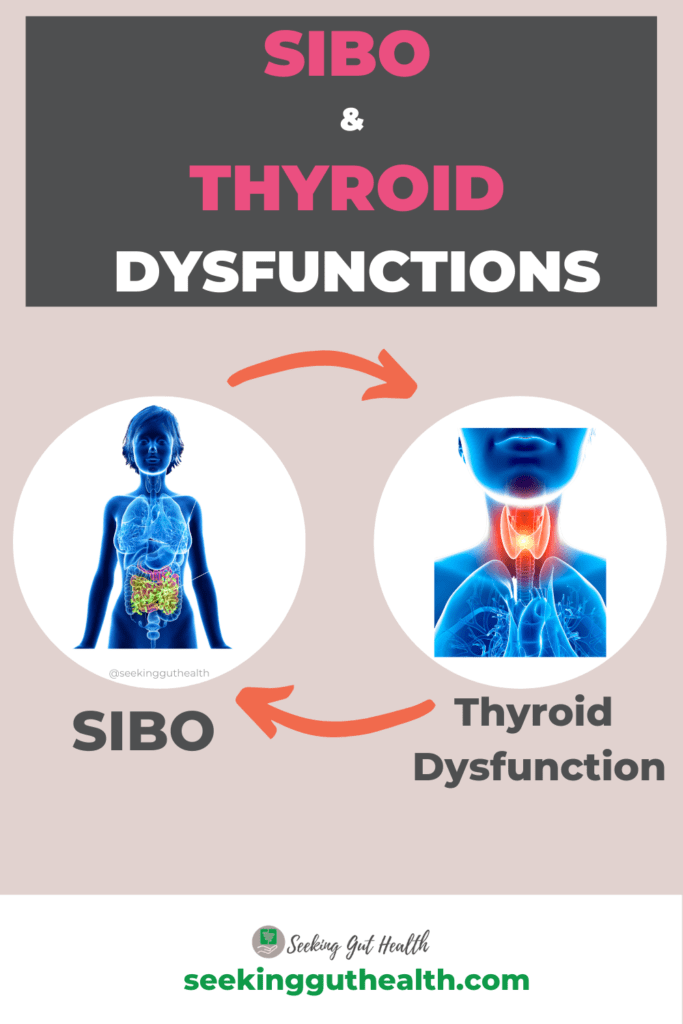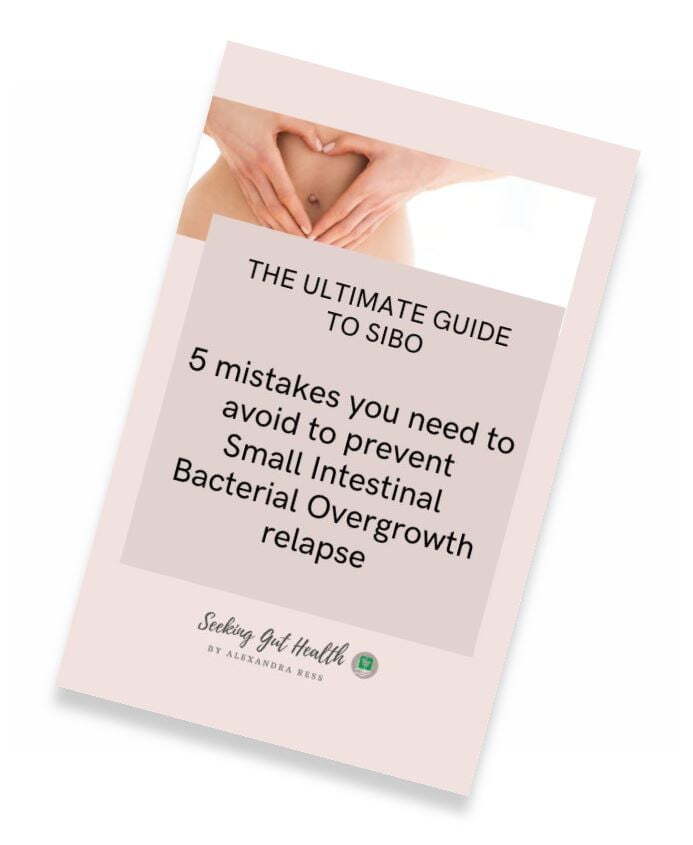 Are you suffering from symptoms such as fatigue, brain fog, mood swings, dry skin, slow bowel movement, and even weight gain? These could also be a sign of thyroid dysfunction. (1, 2, 3, 4, 5, 6) Your thyroid is responsible for controlling your metabolic processes. If it is under-functioning (in the case of hypothyroidism), it pushes the brake pedal and slows down the body's metabolic processes. In the case of hyperthyroidism, it pushes the gas pedal and makes the process run faster.
Are you suffering from symptoms such as fatigue, brain fog, mood swings, dry skin, slow bowel movement, and even weight gain? These could also be a sign of thyroid dysfunction. (1, 2, 3, 4, 5, 6) Your thyroid is responsible for controlling your metabolic processes. If it is under-functioning (in the case of hypothyroidism), it pushes the brake pedal and slows down the body's metabolic processes. In the case of hyperthyroidism, it pushes the gas pedal and makes the process run faster.
Even though you may have thyroid dysfunction, your thyroid-like symptoms can actually stem from your gut. On the other hand, low functioning thyroid could also be a risk factor for Small Intestinal Bacterial Overgrowth (SIBO). It means that SIBO can lead to a hypothyroidism state, but hypothyroidism can also result in bacterial overgrowth.
Imagine taking back control of your body and living bloat-free. Download your free guide and learn the 5 MISTAKES you need to AVOID TO PREVENT SMALL INTESTINAL BACTERIAL OVERGROWTH RELAPSE.
Grab your copy today!
The gut-thyroid connection
Some studies have found that thyroid symptoms improved after treating the gut. These gut issues can come from Helicobacter pylori (7,8), parasites (9), fungal infection (Candida) (10), SIBO (11), or food intolerances (12), etc.
Studies estimate that around 30% of people with hypothyroidism have low stomach acid (13). Stomach acid is essential to kill pathogens and prevent the overgrowth of bacteria. If this protective mechanism fails, then it can easily lead to SIBO. (14) This is why using stomach acid blockers (Proton-pump inhibitors) unnecessarily can be problematic and may also lead to SIBO. Here you can read more about the types of SIBO.
The other reason is that overgrowth of bad bacteria can lead to issues with the conversion of thyroid hormones, namely T4 (inactive form) to T3 (active form). (15) Much of the thyroid hormone is released by the thyroid gland in the inactive type known as T4 (thyroxine), but it must be converted to an active form known as T3 (triiodothyronine) for the cells to use it. (16) Around 20% of T4 can be converted to T3 in the gut by good gut bacteria.
But most of the conversion is done by the liver, which can also be sluggish for many reasons. A sluggish liver and gallbladder cannot remove hormones efficiently, such as estrogen. Elevated estrogen levels can also negatively influence the conversion rate of thyroid hormones. (17)
The other issue can be when T4 converts to reverse T3 (rT3), the inactive form. A higher level of reverse T3 can be produced if someone went through a major life event, a trauma (emotional or physical stress like a surgery), or having chronic stress (illness, inflammation). (18,19) In some cases, other factors such as diet, not just a diet high in sugars and processed foods, but also a ketogenic or very low carb diet, can cause elevated levels of rT3. (20, 21)
So making sure that you have a well-functioning gut and liver, the gallbladder is vital to ensure proper conversion of thyroid hormones.
The immune system-thyroid connection
There are 70% of the body's immune cells located in the gut. The immune response in this part of the body is called GALT, or gut-associated lymphoid tissue. The GALT contains several forms of immune cells, such as T and B cells, that detect and respond to antigens as potential threats that trigger immune system reactions.
Problems arise when any one of these intestinal barriers is weakened. When the small intestine's tight junctions loosen (in case of "leaky gut syndrome"), undigested food particles, microorganisms, toxins, or larger proteins enter the bloodstream. The immune system sees these particles as unwanted intruders and starts an inflammation process to rid of them. Leaky gut can be one of the underlying causes of autoimmune diseases, such as Hashimoto-Thyroiditis, an autoimmune form of hypothyroidism. If you have a leaky gut, the immune system can keep attacking the thyroid and cause continued problems. (22, 23)
What might help to support your body?
Focusing on gut health is an essential part of any treatment process as it is also connected to your immune system and thyroid autoimmunity, and thyroid functions. But concentrating on the thyroid function is also crucial.
If you are experiencing symptoms of thyroid dysfunction and SIBO, you can do the following steps:
- Do the necessary testing to find out what the issue is behind your symptoms: ask for a SIBO breath test and a full thyroid panel from your Practitioner
- Taking thyroid medication may help with motility and considering eliminating SIBO or other infections if present
- Choose a customized diet that eliminates inflammatory foods such as sugar, processed foods, gluten, refined carbohydrates, refined oils, artificial sweeteners, etc.
- Eat a whole food diet – including organic meats, vegetables, fruits, nuts, seeds based on your tolerance
- Apply lifestyle changes that help you manage your daily stress
- Take intestinal lining healing nutrients, boost motility
*This post is only for informational purposes; and not meant to diagnose, or treat any disease. I advise consulting with your healthcare practitioner regarding any treatment options or dietary changes.
- Kaltsas, G., Vgontzas, A., & Chrousos, G. (2010). Fatigue, endocrinopathies, and metabolic disorders. PM & R : the journal of injury, function, and rehabilitation, 2(5), 393–398. org/10.1016/j.pmrj.2010.04.011
- Todd C. H. (2009). Management of thyroid disorders in primary care: challenges and controversies. Postgraduate medical journal, 85(1010), 655–659. org/10.1136/pgmj.2008.077701
- Safer J. D. (2011). Thyroid hormone action on skin. Dermato-endocrinology, 3(3), 211–215. org/10.4161/derm.3.3.17027
- Okopien, R. K.‐C.‐P. (2016). Sexual function and depressive symptoms in young women with thyroid autoimmunity and subclinical hypothyroidism. Clinical Endocrinology, Pages 925-931. doi:10.1111/cen.12956
- Canaris, G. J., Steiner, J. F., & Ridgway, E. C. (1997). Do traditional symptoms of hypothyroidism correlate with biochemical disease?. Journal of general internal medicine, 12(9), 544–550. org/10.1046/j.1525-1497.1997.07109.x
- Müller-Lissner, S. A., Kamm, M. A., Scarpignato, C., & Wald, A. (2005). Myths and misconceptions about chronic constipation. The American journal of gastroenterology, 100(1), 232–242. doi.org/10.1111/j.1572-0241.2005.40885.x
- Bertalot, G., Montresor, G., Tampieri, M., Spasiano, A., Pedroni, M., Milanesi, B., Favret, M., Manca, N., & Negrini, R. (2004). Decrease in thyroid autoantibodies after eradication of Helicobacter pylori infection. Clinical endocrinology, 61(5), 650–652. doi.org/10.1111/j.1365-2265.2004.02137.x
- Ribichini, D., Fiorini, G., Repaci, A., Castelli, V., Gatta, L., Vaira, D., & Pasquali, R. (2017). Tablet and oral liquid L-thyroxine formulation in the treatment of naïve hypothyroid patients with Helicobacter pylori infection. Endocrine, 57(3), 394–401. doi.org/10.1007/s12020-016-1167-3
- El-Zawawy, H. T., Farag, H. F., Tolba, M. M., & Abdalsamea, H. A. (2020). Improving Hashimoto's thyroiditis by eradicating Blastocystis hominis: Relation to IL-17. Therapeutic advances in endocrinology and metabolism, 11, 2042018820907013. https://doi.org/10.1177/2042018820907013
- Atkinson, T. P., Schäffer, A. A., Grimbacher, B., Schroeder, H. W., Jr, Woellner, C., Zerbe, C. S., & Puck, J. M. (2001). An immune defect causing dominant chronic mucocutaneous candidiasis and thyroid disease maps to chromosome 2p in a single family. American journal of human genetics, 69(4), 791–803. https://doi.org/10.1086/323611
- Patil A. D. (2014). Link between hypothyroidism and small intestinal bacterial overgrowth. Indian journal of endocrinology and metabolism, 18(3), 307–309. https://doi.org/10.4103/2230-8210.131155
- Asik, M., Gunes, F., Binnetoglu, E., Eroglu, M., Bozkurt, N., Sen, H., Akbal, E., Bakar, C., Beyazit, Y., & Ukinc, K. (2014). Decrease in TSH levels after lactose restriction in Hashimoto's thyroiditis patients with lactose intolerance. Endocrine, 46(2), 279–284. https://doi.org/10.1007/s12020-013-0065-1
- Cellini, M., Santaguida, M. G., Virili, C., Capriello, S., Brusca, N., Gargano, L., & Centanni, M. (2017). Hashimoto's Thyroiditis and Autoimmune Gastritis. Frontiers in endocrinology, 8, 92. https://doi.org/10.3389/fendo.2017.00092
- Dukowicz, A. C., Lacy, B. E., & Levine, G. M. (2007). Small intestinal bacterial overgrowth: a comprehensive review. Gastroenterology & hepatology, 3(2), 112–122.
- Hays M. T. (1988). Thyroid hormone and the gut. Endocrine research, 14(2-3), 203–224. https://doi.org/10.3109/07435808809032986
- Shahid MA, Ashraf MA, Sharma S. Physiology, Thyroid Hormone. [Updated 2020 May 18]. In: StatPearls [Internet]. Treasure Island (FL): StatPearls Publishing; 2021 Jan-. Available from: https://www.ncbi.nlm.nih.gov/books/NBK500006/
- Portincasa, P., Di Ciaula, A., Wang, H. H., Palasciano, G., van Erpecum, K. J., Moschetta, A., & Wang, D. Q. (2008). Coordinate regulation of gallbladder motor function in the gut-liver axis. Hepatology (Baltimore, Md.), 47(6), 2112–2126. https://doi.org/10.1002/hep.22204
- Furr, M. O., Murray, M. J., & Ferguson, D. C. (1992). The effects of stress on gastric ulceration, T3, T4, reverse T3 and cortisol in neonatal foals. Equine veterinary journal, 24(1), 37–40. https://doi.org/10.1111/j.2042-3306.1992.tb02776.x
- Madsen, M., Lovén, L., Smeds, S., Tegler, L., & Lennquist, S. (1986). "The low T3 syndrome" and impaired thyroid protein synthesis in experimental trauma. Acta chirurgica Scandinavica, 152, 91–96.
- Mathieson, R. A., Walberg, J. L., Gwazdauskas, F. C., Hinkle, D. E., & Gregg, J. M. (1986). The effect of varying carbohydrate content of a very-low-caloric diet on resting metabolic rate and thyroid hormones. Metabolism: clinical and experimental, 35(5), 394–398. https://doi.org/10.1016/0026-0495(86)90126-5
- Otten, M. H., Hennemann, G., Docter, R., & Visser, T. J. (1980). The role of dietary fat in peripheral thyroid hormone metabolism. Metabolism: clinical and experimental, 29(10), 930–935. https://doi.org/10.1016/0026-0495(80)90035-9
- Camilla Virili, I. S. (2021). Gut microbiome and thyroid autoimmunity. Best Practice & Research Clinical Endocrinology & Metabolism. doi:10.1016/j.beem.2021.101506.
- Arrieta, M. C., Bistritz, L., & Meddings, J. B. (2006). Alterations in intestinal permeability. Gut, 55(10), 1512–1520. https://doi.org/10.1136/gut.2005.085373

Alexandra is a Functional Medicine Certified Health Coach & Holistic Nutritionist specializing in IBS, SIBO, and Gut Health. She helps her clients identify the root causes of their chronic gut issues with functional testing, supporting their bodies holistically and implementing the necessary lifestyle changes long-term to regain control of their bodies and enjoy food freedom. Book your FREE SIBO Assessment call now >>>

